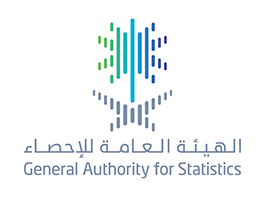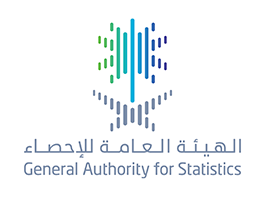GASTAT: Inflation Rate in Saudi Arabia Stabilizes at 1.7% in September 2024
The annual inflation rate in Saudi Arabia remained stable at 1.7% during September 2024, showing a relative stability on a year-on-year basis. The inflation rate in Saudi Arabia is considered one of the most stable rates, which confirms the strength and resilience of the Saudi economy. It also demonstrates the effectiveness of the economic plans and decisions that the Kingdom has swiftly implemented to address the wave of global inflation and high prices. It is noteworthy that the Consumer Price Index (CPI) reflects the changes in prices that consumers pay for a fixed basket of goods and services consisting of 490 items. This basket was selected based on the results of the Household Expenditure and Income Survey conducted in 2018. Prices are collected through field visits to points of sale, and statistics on the Consumer Price Index in the Kingdom are published on a monthly basis.
GASTAT IPI Rises by 1.0% in August 2024
The General Authority for Statistics (GASTAT) released today the results of the Industrial Production Index (IPI) for August 2024. IPI increased by 1.0% during August 2024 compared to the same month in the previous year (August 2023), supported by the rise in mining and quarrying activity, manufacturing activity, and electricity, gas, steam, and air conditioning supply activities. The publication indicated that the index for mining and quarrying activity in August 2024 rose by 0.8% compared to the same month of the previous year (August 2023). Additionally, the index for manufacturing activity in August 2024 increased by 1.1% compared to August 2023. The sub-index for the supply of electricity, gas, steam, and air conditioning recorded a rise of 4.1%, while the sub-index for water supply, sewerage and waste management and remediation activities decreased of 0.9% compared to August of the previous year. On another note, the index for oil-related activities recorded a decline of 1.4% in August 2024, while the index for non-oil activities achieved an increase of 7.0% compared to August 2023. It is worth mentioning that the General Authority for Statistics issues several statistical products related to the industry, including the Industrial Production Index (IPI), which is an economic indicator that reflects the relative changes and developments in the volume of industrial production. This survey targets industrial establishments engaged in the specified activities, namely mining and quarrying , manufacturing, electricity, gas, steam, and air conditioning supply, as well as water supply, sewage, and waste management activities.
Non-oil exports increase by 19.0% in July 2024
The General Authority for Statistics (GASTAT) indicated that the value of merchandise exports during July 2024 amounted to 94.5 billion SAR, compared to 92.6 billion SAR during July 2023, with an increase of 1.9 billion SAR, or 2.1%.
The value of oil exports during July 2024 amounted to 69.1 billion SAR, compared to 71.3 billion SAR during July 2023, with a decrease of 2.2 billion SAR, or 3.1%, according to the results of the publication.
The value of non-oil exports (including re-exports) during July 2024 amounted to 25.4 billion SAR, compared to 21.3 billion SAR during July 2023, with an increase of 4.1 billion SAR by 19.2% , the results noted.
While the value of the Saudi Arabia's merchandise imports during July 2024 amounted to 75.2 billion SAR, compared to 66.8 billion SAR during July 2023, with a decrease of 8.4 billion SAR, or 12.6%.
GASTAT President heads the delegation participating in 11th Meeting of the Standing Committee for Statistical Work Affairs in Muscat
Dr. Fahad Aldossari, the President of the General Authority for Statistics (GASTAT), headed the delegation from GASTAT participating in the 11th Meeting of the Standing Committee for Statistical Work Affairs held in Muscat, Oman. The meeting aimed to enhance Gulf joint statistical work, support sustainable development plans, and exchange statistical expertise among member states. The Committee reviewed the implementation of its previous decisions and examined performance reports from the past period. It discussed ways to strengthen cooperation among Gulf Cooperation Council (GCC) countries to elevate statistical work, keep pace with global developments, and continuously improve mechanisms for exchanging statistical data. The committee also focused on collaboration in sharing expertise and information, supporting programs to raise statistical awareness, and addressing common challenges. GASTAT’s President highlighted the importance of relations among the GCC countries in pushing wider horizons for effective cooperation in the field of information and statistical data. He expressed his appreciation to the committee members for their efforts in consolidating the concepts of statistical work and its role in supporting development plans and national visions for the council's countries. He praised the support that statistical offices receive from the leaders of GCC countries. The Statistical Centre for the Cooperation Council for the Arab Countries of the Gulf (“GCC-Stat”) was established to enhance statistical and informational work for national statistical centers and planning agencies, serving as the official source of data, information, and statistics in the member states. The establishment of GCC Stat was approved by the GCC Ministerial Council in September 2011. The Charter was officially endorsed in December 2012 by the GCC Supreme Council (comprised of heads of member states).

GASTAT launches guides on editorial policy and number writing
President of GASTAT Participates in Regional Data and Community Development Forum in Sharjah
The President of the General Authority for Statistics(GASTAT) Dr. Fahad Aldossari participated in a panel discussion held as part of the Regional Data and Community Development Forum in Sharjah, UAE. The session included a distinguished group of experts in social development, economists, data specialists, and decision-makers to discuss statistical offices in the age of artificial intelligence. Notable participants in the discussion included Ms. Kersti Kaljulaid, former President of Estonia, Mr. Ali bin Mahboob, former Chair of the UN Statistical Commission, and Mr. Alan Smithson, Co-Founder of MetaVerse.
During his participation in the "Expert Talk" session, Dr. Fahad Aldossari explained that GASTAT has invested in expanding the diversification of data sources by utilizing administrative records available from various entities in both the public and private sectors. He emphasized the importance of expanding strategic partnerships that support this direction, supplemented by satellite data and big data, in addition to the surveys conducted by GASTAT. He affirmed that diversifying data sources enhances their quality and reliability.
In the same context, He stated that focusing on the development of statistical systems aligns with Saudi Vision 2030, which prioritizes technological innovation and governance based on organized and unbiased data. He pointed out that Saudi Arabia's investment stems from the belief that technological advancement is not only a means to improve efficiency and accuracy but is also a fundamental pillar for transforming statistical centers into strategic tools that support decision-makers in developing data-driven economic and social policies.
It is noteworthy that Saudi Arabia is participating in the Regional Data and Community Development Forum, represented by GASTAT, at the invitation of the Sharjah Department of Statistics and Community Development which will take place on 9-10 October 2024. The forum aims to raise awareness of the importance and benefits of data in addressing social and environmental issues and to highlight best practices and examples in this field. The forum brings together policymakers, government officials, and private sector representatives along with community development experts, academics, researchers, national statistical offices, and international organizations.

